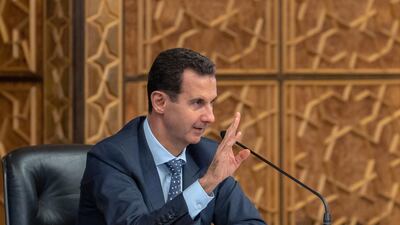Idlib province in north-western Syria has been inhabited for at least 5,000 years. It was the seat of powerful kingdoms in the Bronze and Iron Ages and is where the famed Ebla Tablets were discovered: 15,000 clay tablets, inscribed in cuneiform, which describe a prosperous community thriving in 2,500BC. It now also bears the ignominy of being the birthplace of Major General Mohammed Rahmoun, appointed the new Syrian interior minister in a cabinet shake-up by Bashar Al Assad. Cabinet reshuffles are traditionally used by leaders to consolidate support, reward loyalists and punish dissenters. This one will strike fear into the hearts of Syrians and confirm what many have long realised: that Mr Al Assad has no interest in putting their best interests first, nor even of hearing their concerns. He only intends to crush all opposition and has recruited a brutish henchman to carry out his dirty work. For Mr Rahmoun is the former head of Syria’s Political Security Directorate, a dark force thought to be responsible for the arrest and torture of tens of thousands of anti-regime activists.
The War College graduate is one of Mr Al Assad’s chief acolytes. As an Air Force Intelligence brigadier in 2011, he oversaw the detention and torture of thousands in Harasta, Douma and Barzeh. Prisoners under his watch were reportedly forced to dig tunnels and trenches for the regime. He was involved in the 2013 chemical attack in Ghouta that claimed the lives of more than 1,300 victims. For that, he appears to have earned his stripes and was promoted to the rank of major general, giving him a seat at the table of the 2017 Astana talks that relegated the UN-led Geneva process to the sidelines. To get the measure of this man, we have only to learn he must have sanctioned the 2017 chemical attack Khan Sheikhoun, in which 80 people died in horrific circumstances, despite it being his own place of birth.
The US Treasury put sanctions in place against him in 2017 for human rights abuses during the Syrian war. Yet his crimes against Syrians only seem to have propelled him through the ranks and earned him great favour within the regime. If this is the face of security in Syria, what hope do ordinary citizens have?

